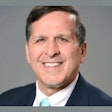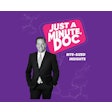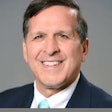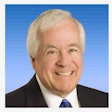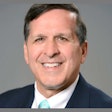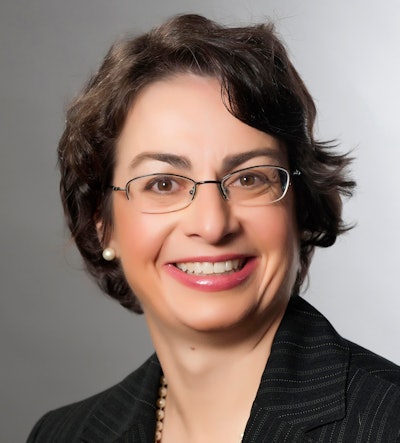
I recently was referred to a book, "Setting the Table: The Transforming Power of Hospitality in Business" by Danny Meyer, who is a New York City restaurateur and founder of the Union Square Hospitality Group. In "Setting the Table," Meyer explains how he developed his business philosophy that he calls enlightened hospitality, where there are strong in-house relationships that build customer satisfaction.
How does being a successful business owner and restaurateur relate to dentistry? There are many parallels, and this article reviews a few of them so that any dental professional can create enlightened passion and hospitality for their patients.
Do you realize that dental patients are consumers? They are consumers of dentistry and oral and systemic health. As such, we are obligated to provide the best in our clinical skills but also the best in consumer skills. Hospitality is one aspect of the consumer skills that teams should practice. Throughout this article, I will reference quotes from "Setting the Table" and how dentistry can apply Meyer's principles.
"Hospitality is the foundation of my business. Virtually nothing else is as important to me as how one is made to feel in any business transaction." With that quote, Meyer is stating that service in a restaurant is not a transactional experience but rather a relationship experience. A transactional experience is self-serving: I provide a service (treatment), and I get paid. Relationship experiences are built on being reciprocally rewarded with a natural give and take. The adage "People don't care how much you know until they know how much you care" is a good example of a relationship experience.
As dental professionals, dental consumers want the information … but they first want to understand how you make them feel. Detailing complex dental terms without first building a relationship decreases the ability to elevate the practice and team. Yes, some patients want complex information, while most want to know how it is going to make them feel, how long will it take, and how much will it cost. Building the relationship first empowers the team to answer those questions in a relationship rather than in a transactional mode.
Meyer states "understanding the distinction between service and hospitality has been the foundation of our success." Service is the technical delivery of a product. Hospitality is how the delivery of that product makes the recipient feel. Service is a monologue; we decide how we want to do things and set our standards of service. Hospitality, on the other hand, is a dialogue.
"The business equation of technical experience accounts for 49% and the innate emotional skills of hospitality account for 51%." Within dentistry, the Creative Ventures Development Group uses the same equation to explain that dentistry is a team sport with the dental equation. The equation consists of 49% clinical skills, where we spend years learning and honing the clinical aspects of our profession.
The 51% is our business acumen -- not solely the business of the practice but the people/hospitality aspect of the practice. Practices and teams often devote more time to the 49%, but the 51% is what patient consumers are seeking. The more hospitality-focused a practice is, the greater patient case acceptance becomes.
All industries are experiencing employment shortages, and both the restaurant and dental worlds are no exception. Yet Meyer wants members of his team to be focused on the customer.
"No one can possibly be upbeat and happy all the time. But personal mastery demands that team members be aware of their moods and keep them in check. It does no one good to project a negative mood into the work environment or onto one's colleagues. Don't hire someone for the sake of a body -- the 'whelming' candidate you must avoid at all costs. Over-whelmers earn you raves, under-whelmers either leave on their own or are terminated. Whelmers infuse the organization and team members with mediocrity, they are comfortable, so they never leave and frustratingly never do anything that rises to the level of promotion or termination. Look for people who naturally radiate warmth, friendliness, happiness and kindness."
Do your patient consumers deserve whelmers or overwhelmers? High-function practices and teams have a team of overwhelmers and each one provides the dental consumer with the care that they are seeking. Utilizing the predictive index is a way to transform the practice into overwhelmers to define, design, and provide talent optimization.
"Wherever your center lies, know it, name it, stick to it, and believe in it. Everyone who works with you will know what matters to you and will respect and appreciate your unwavering values. Your inner beliefs about the business will guide you through the tough times. Treating customers, employees, suppliers, and investors with respect and providing them the opportunity to add value to the business and the community allows the community to thrive, thus the business thrives. This foundation will help the business grow which will ultimately lead to expansion and success."
Do team members understand the goal and mission of the practice? Do they practice it daily? It is the responsibility of the leader of the practice to take ownership of the respect and value proposition for the team and name it, stick to it, and believe in it. When respect and value are not present in the team, patients feel it and move on from the practice.
The synergy between hospitality and dentistry is undeniable. By prioritizing patient comfort and experience while treating them as consumers, dental practices can transform routine appointments into positive interactions that foster trust and loyalty. Just as a warm welcome sets the tone for a memorable stay, a hospitable dental environment can alleviate anxiety and create lasting impressions. Ultimately, the harmonious blend of clinical expertise and compassionate care elevates the dental experience to new heights, making the consumer feel valued and cared for while growing the practice and team.
For more information regarding the Creative Ventures Development Group or the predictive index contact the author at [email protected].
Ann-Marie C. DePalma, CDA, RDH, MEd, is a graduate of the Forsyth School for Dental Hygienists, Northeastern University, and the University of Massachusetts Boston. She is a fellow of the Association of Dental Implant Auxiliaries, a fellow of the American Academy of Dental Hygiene, a continuous member and fellow of the American Dental Hygienists' Association as well as a lifetime member of the American Association of Dental Office Management. She is the 2017 Esther Wilkins Distinguished Alumni of Forsyth Award recipient.
The comments and observations expressed herein do not necessarily reflect the opinions of DrBicuspid.com, nor should they be construed as an endorsement or admonishment of any particular idea, vendor, or organization.














